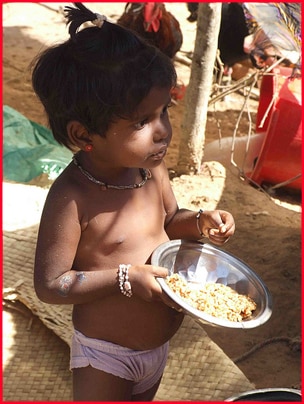 In December, Bruce Horovitz reported on a rather interesting event, the announcement by Frito-Lay that the corporation will start making half of its snacks from all-natural ingredients. (Frito-Lay, incidentally, is part of PepsiCo, so you know what kind of natural, healthy credentials we’re talking about.) According to Ann Mukherjee, the chief marketing officer, there will no longer be MSG in barbecue potato chips, or in lime-flavored tortilla chips. And, of course, the labels on the products will announce “all natural” in a big way.
In December, Bruce Horovitz reported on a rather interesting event, the announcement by Frito-Lay that the corporation will start making half of its snacks from all-natural ingredients. (Frito-Lay, incidentally, is part of PepsiCo, so you know what kind of natural, healthy credentials we’re talking about.) According to Ann Mukherjee, the chief marketing officer, there will no longer be MSG in barbecue potato chips, or in lime-flavored tortilla chips. And, of course, the labels on the products will announce “all natural” in a big way.
Horovitz says the food giant has noticed that consumers want to buy snacks that do not include artificial colors, preservatives, and additives. Worse yet, consumers are getting these snacks from local or regional startup companies, cutting into the huge corporation’s profits.
You will recall Kelly Brownell, director of Yale University’s Rudd Center for Food Policy and Obesity, who has been concerned for a long time over the fact that fast-food customers have no idea what they are eating. Here, Horovitz quotes Brownell:
One nutritionist is mocking Frito-Lay’s action. ‘They’ll get more PR mileage out of this than any real change,’ says Kelly Brownell… ‘The public health consequences from consuming those foods isn’t related to natural ingredients, but to high fat and high salt.’
Now, for another perspective, let’s look at the unfortunately uncredited article from Fooducate, reacting to Frito-Lay’s announcement. While approving of the absence of unhealthful additives in processed food, the writer expresses doubt:
If junk food companies would really care about our health, they wouldn’t peddle soft drinks and empty calorie snacks to our children. They wouldn’t spend billions in advertising and product placement to get us to eat MORE MORE MORE snacks. They would re-invent themselves to create totally new brands, back to basics foods.
Bottom line: ‘All Natural’ junk food is still junk food.
Dr. Pretlow has faced the argument that food can’t be considered an addictive substance because eating is essential to human life. Some say that, just because a substance is capable of being abused, that doesn’t necessarily make it addictive. And, really, both those things are true. Still, they both leave the possibility open, that some foods can be addictive to some people under some circumstances.
Which foods? The kind that are specifically engineered to pack the maximum wallop in terms of irresistibility. Of all the slogans that have been thought up by the advertising business, one of the most sinister is, “Bet you can’t eat just one.” The entire junk food industry has been built around that bet. Whatever it takes to make a person devour a whole package of pseudo-food, and then open another package, is what the sellers will do.
Which people? The ones who have a predisposition to becoming addicted. There are physiological, psychological, emotional, and even spiritual dimensions to addiction. Research has been going on for a long time, trying to figure out how to stop addiction before it starts. Meanwhile, a whole bunch of people are already addicted to food, and a lot of them are kids. Obese kids.
Which circumstances? The things that drive people into desperation are endless. Family problems, money problems, school problems, workplace problems, health problems. A lot of things happen to a person. A lot of things happen to a society. The thing about circumstances is, any one of them alone might not have been enough to push a person into addiction. But they add up, and lately they have been adding up to what Dr. Pretlow calls the Childhood Obesity Perfect Storm. Here is one example of a circumstance that be either inconsequential, or extremely harmful. Dr. Pretlow has said,
Highly pleasurable foods are deeply entrenched in our culture.
And a skeptic could say, “That has been true in many times and places.” Absolutely. In probably every culture known to humanity, feasting has occurred, and the preparation of culinary delights has been an important aspect of the culture. But, in the old days, a feast truly was a feast, and relatively rare. Major indulgence in food might only take place a few times in a year. The rest of the time, people lived with scarcity. And, in the old days, even for the very rich, there would still be some kind of limit on what edibles were available.
Now, all kinds of highly palatable, hedonic foods and ersatz foods are obtainable almost at will. There is a convenience store or a fast-food restaurant on every corner. And you can buy a can of soda pop in any remote corner of the world. The fact that delicious food exists, used to be just part of “society as usual.” Now, thanks to its confluence with other factors, it has become part of the Perfect Storm.
Your responses and feedback are welcome!
Source: “Frito-Lay to make snacks from natural ingredients,” USA Today, 12/28/10
Source: “Frito Lay Announces ‘All Natural’ Junk Food,” Fooducate, 12/29/10
Image by trokilinochchi, used under its Creative Commons license.

 FAQs and Media Requests:
FAQs and Media Requests: 












One Response